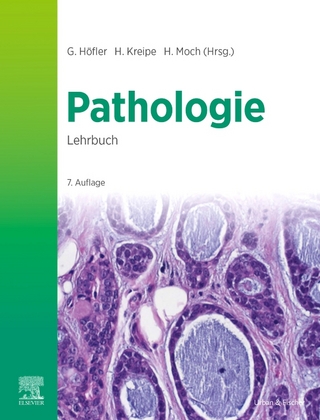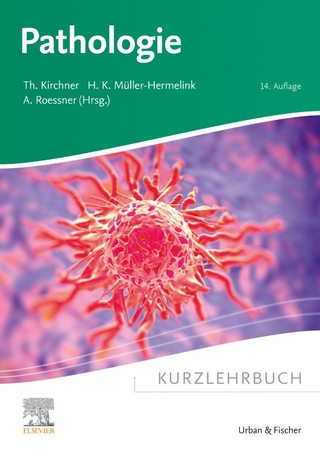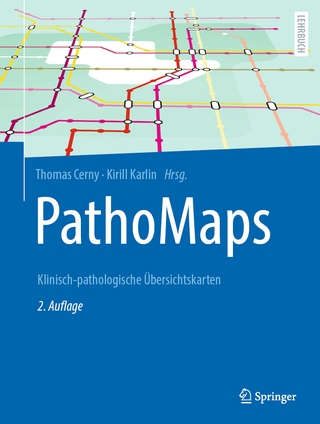
Drug Design and Discovery in Alzheimer’s Disease
Bentham Science Publishers (Verlag)
978-0-12-803959-5 (ISBN)
Atta-ur-Rahman, Professor Emeritus, International Center for Chemical and Biological Sciences (H. E. J. Research Institute of Chemistry and Dr. Panjwani Center for Molecular Medicine and Drug Research), University of Karachi, Pakistan, was the Pakistan Federal Minister for Science and Technology (2000-2002), Federal Minister of Education (2002), and Chairman of the Higher Education Commission with the status of a Federal Minister from 2002-2008. He is a Fellow of the Royal Society of London (FRS) and an UNESCO Science Laureate. He is a leading scientist with more than 1283 publications in several fields of organic chemistry. Muhammad Choudhary, PhD, is a Professor of the International Center for Chemical and Biological Sciences, (H. E. J. Research Institute of Chemistry and Dr. Panjwani Center for Molecular Medicine and Drug Research), University of Karachi, Pakistan. He is a member of the Royal Society of Chemistry, London; American Chemical Society; International Union of Pure and Applied Chemistry (IUPAC); American Society of Pharmacology; New York Academy of Sciences; Federation of Asian Chemical Societies (FACS); and he serves on the executive board of the Asian Network of Research on Anti Diabetic Plants (ANRAP). He is a recipient of the National Book Foundation's Prize for Chemistry and the Economic Cooperation Organization (ECO) Award in Education, 2006, given by the President of Azerbaijan. He has published 24 books, more than 570 papers, and 20 patents.
1. Pharmacotherapy of Alzheimer's Disease: Current State and Future Perspectives 2. Challenges in Designing Therapeutic Agents for Treating Alzheimer’s Disease-from Serendipity to Rationality 3. Enzyme Inhibitors Involved in the Treatment of Alzheimer’s Disease 4. Towards Small Molecules as Therapies for Alzheimer’s Disease and Other Neurodegenerative Disorders 5. Multifunctional Enzyme Inhibition for Neuroprotection - A Focus on MAO, NOS, and AChE Inhibitors 6. Specific Cholinesterase Inhibitors: A Potential Tool to Assist in Management of Alzheimer Disease 7. Role of Acetylcholinesterase Inhibitors and Alzheimer Disease 8. Research Strategies Developed for the Treatment of Alzheimer’s Disease. Reversible and Pseudo-Irreversible Inhibitors of Acetylcholinesterase: Structure-Activity Relationships and Drug Design 9. Modulation of BACE1 Activity as a Potential Therapeutic Strategy for Treating Alzheimer’s Disease 10. BACE1 Inhibitors: Attractive Therapeutics for Alzheimer’s Disease 11. Combining BACE1 Inhibition with Metal Chelation as Possible Therapy for Alzheimer’s Disease 12. Somatostatin Receptor-4 Agonists as Candidates for Treatment of Alzheimer’s Disease 13. Neprilysin Inhibitors Provide Insight into its Specificity and Therapeutic Potential 14. Targeting the GSK3ß/ß-catenin Signaling to Treat Alzheimer´s Disease: Plausible or Utopic? 15. Targets and Small Molecules Against Tauopathies. Part 1: From Genes to Soluble, Aggregation-Prone Tau Proteins 16. Nanomedicine Based Drug Targeting in Alzheimer’s Disease: High Impact of Small Carter
| Erscheint lt. Verlag | 3.6.2015 |
|---|---|
| Sprache | englisch |
| Maße | 191 x 235 mm |
| Gewicht | 1560 g |
| Themenwelt | Medizin / Pharmazie ► Medizinische Fachgebiete ► Pharmakologie / Pharmakotherapie |
| Medizin / Pharmazie ► Pharmazie | |
| Studium ► 2. Studienabschnitt (Klinik) ► Pathologie | |
| Naturwissenschaften ► Biologie ► Humanbiologie | |
| Naturwissenschaften ► Biologie ► Zoologie | |
| Naturwissenschaften ► Chemie ► Analytische Chemie | |
| Technik | |
| ISBN-10 | 0-12-803959-0 / 0128039590 |
| ISBN-13 | 978-0-12-803959-5 / 9780128039595 |
| Zustand | Neuware |
| Haben Sie eine Frage zum Produkt? |
aus dem Bereich


